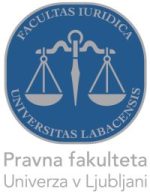About the project
Judicial Selection Under Scrutiny: Judicial Independence, Lawfulness and Merit – JUDGMERIT project (J5-4583) is funded by the Slovenian Research and Innovation Agency (ARIS).
Duration of the project
1 October 2022 – 30 September 2025.
Description of the project
Independent and high-quality judiciary is the cornerstone of the rule of law and the guarantor of democracy. It is therefore essential that the best law graduates become judges, that the best judges are promoted to senior positions in the judiciary, and that selection and appointment procedures ensure the quality, judicial independence and lawfulness of courts. This guarantees public confidence in the judiciary and adequate protection of the rights of parties.
The main research question of the project is: To what extent and how does the selection of Slovenian judges take into account European standards of judicial independence, lawfulness of courts and merits of candidates, and does it take them into account to a sufficient extent? While trying to establish whether the procedures in Slovenia comply with European standards, we will also answer an inherent question: How do the key subjects in the judicial selection procedures in Slovenia assess the qualities that a good judge should have? The project will use an empirical research approach to:
- Identify and analyze European standards concerning judicial independence and the lawfulness of courts,
- Define merit that should be the primary guiding principle in judicial selection procedures,
- Analyse a wide range of issues related to the selection, appointment and promotion of Slovenian judges (e.g. the problematic role of the legislature, procedural guarantees, etc.).
The project aims to fill large scientific gaps in the judicial selection procedures both in Slovenia and in the wider European context. We aim to contribute to a better understanding of the conditions under which a high-quality and independent judiciary can develop. By analysing the currently still unclearly defined European standards on judicial independence and the lawfulness of courts, we will reduce uncertainties in their interpretation. We will set out a theoretical-empirical definition of merit that will help us understand the qualities of a good judge. Finally, we will use the above standards and findings to analyse and critically evaluate the selection procedures in Slovenia.
Project Team
Project Leader

Members















